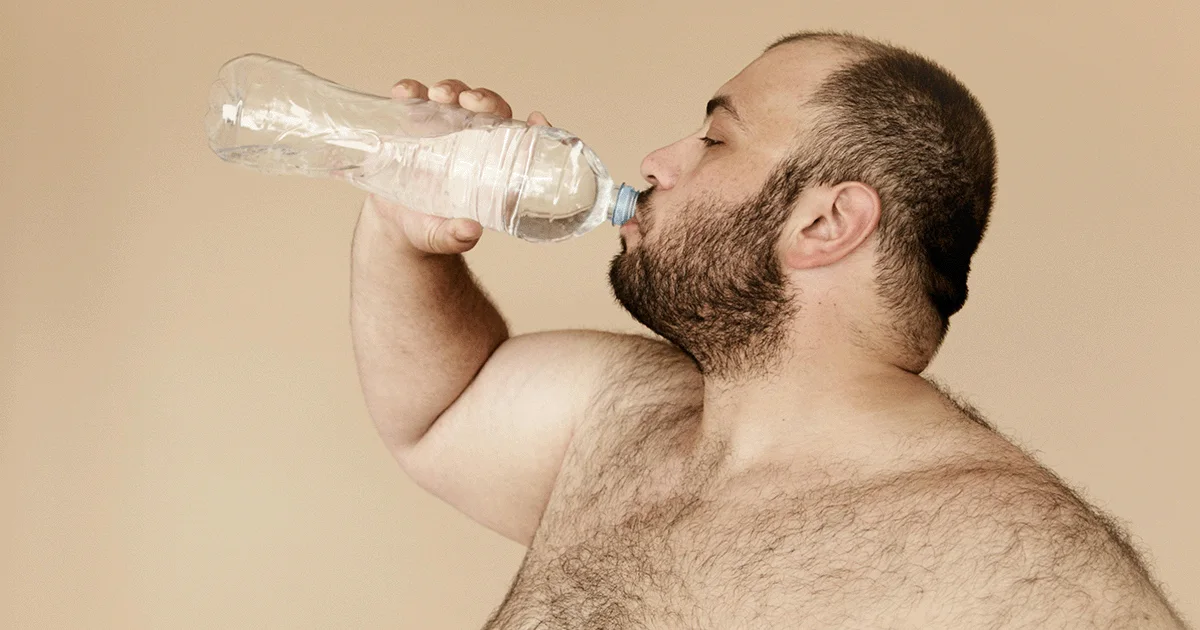Key takeaways
Many people experience periods throughout life during which they have little or no sex. Some people choose to voluntarily abstain from sex for spiritual or health reasons, while others may not be able to have sex due to a health condition or life circumstance.
Not having sex may feel stressful, but it shouldn’t negatively impact your physical health. That said, it can cause other issues such as increased stress, low self-esteem, and relationship problems.
Sex offers a range of full-body benefits, including better heart health, stronger immune function, and improved mental health. Plus, being a form of exercise, sex can be a fun way to burn a few calories.
Here's what we'll cover
Here's what we'll cover
Here's what we'll cover
Key takeaways
Many people experience periods throughout life during which they have little or no sex. Some people choose to voluntarily abstain from sex for spiritual or health reasons, while others may not be able to have sex due to a health condition or life circumstance.
Not having sex may feel stressful, but it shouldn’t negatively impact your physical health. That said, it can cause other issues such as increased stress, low self-esteem, and relationship problems.
Sex offers a range of full-body benefits, including better heart health, stronger immune function, and improved mental health. Plus, being a form of exercise, sex can be a fun way to burn a few calories.
So, you’re going through a dry spell. Okay, maybe a really dry spell. Among other (potentially anxious) thoughts, you might be wondering: Is it unhealthy to not have sex? What are the side effects of not having sex in a man?
The good news is, not having sex isn’t going to kill you. It’s natural to have periods where you don’t have sex, whether due to changes in sex drive, relationship status, a health issue, or personal reasons. Some people are just plain not interested in getting intimate, while others choose to abstain for a set period — and then some folks are celibate for life.
However, if you want to have more sex and it’s not happening for whatever reason, it can cause a significant amount of distress. In addition, getting busy in the bedroom does offer some unique health benefits.
Here, we’ll take a closer look at what impact not having sex has on the body, plus the potential health benefits intimacy has to offer.
Physical effects of not having sex
Lots of people don’t have sex and live perfectly healthy lives. However, there are certain health benefits and protective effects you may be missing out on if you’re not getting it on.
May impact heart health
Not having sex isn’t going to take down your ticker, but research suggests it could potentially increase your risk of heart disease.
One study found that people who had sex infrequently (fewer than 12 times a year) were at higher risk of developing cardiovascular disease. As sexual frequency increased, however, the rates of heart disease declined. The exact reason behind these effects isn’t known, but sex does offer exercise and blood flow benefits — two crucial components of a healthy heart.
There’s no official magic number, as everyone is different. But the research suggests having sex at least 12 times per year can be optimal for protecting against heart disease and improving overall quality of life.
Of course, if you already have heart disease, make sure to check with your healthcare provider to ensure you are medically cleared for sexual activity before making a significant change to your routine.
May affect erectile function
Research on this is limited, but small studies have reported a link between not having sex and erectile dysfunction (ED).
In one study, men who had sex three or more times per week had an 85% lower risk of developing ED compared to those who had sex less than once a week. More research is needed, but this may be because regular sexual activity encourages consistent blood flow to the penis, which is important for healthy erections. Getting hard can also be a mental game; not having sex for a long period may cause stress, anxiety, and low self-esteem — all psychological factors that can trigger ED.
When interpreting this data, it’s important to remember that those struggling with ED may be less likely to have sex because they may not know if their ED will affect their experience.
May weaken the immune system
More research is needed, but some studies show sex may offer a protective effect on the immune system. For example, one study found that people who had sex more than three times a month were less likely to get COVID-19 compared to those who had sex less than three times a month. Though the mechanism behind this isn’t clear, it’s suggested that as sexual activity increases, the body’s immune system is better able to deal with harmful pathogens.
Another older study found that people who had sex frequently (1-2 times per week) had higher levels of immunoglobulin A, an antibody that helps the body fight off infections and protects against many types of diseases, compared to those who did not have sex or had sex infrequently (less than once per week).
Mental effects of not having sex
While not having sex appears to have a mild to moderate impact on your physical health, if at all, there is evidence that it can have a significant impact on mental health. Here are some of the mental side effects of not having sex in a man.
May increase anxiety and depression
If you’re feeling down or on edge, getting busy might help. One study found that adults aged 57-85 who engaged in sex regularly had markedly lower rates of depression, regardless of their marital status.
More research is needed, but this may be because your body releases “feel-good” hormones during sex that promote well-being and alleviate anxiety. Regular sex can also boost confidence and increase feelings of bonding between partners, which can also reduce anxiety. Furthermore, engaging in more social activity in general can have a protective effect on mental health.
May worsen mood and increase stress levels
You may know from personal experience that sex can be a pretty good mood booster. Again, it’s thanks to those hormones — more specifically, endorphins, dopamine, and oxytocin — released during sex that are known to elevate mood and reduce stress.
Research shows these hormones can also be important for better sleep, which can have a huge impact on mood and stress levels. That’s why the absence of these hormones may leave you feeling stressed and moody, especially if you’re accustomed to regular sex and currently not getting it on. And, to make matters worse, stress can lead to ED, which can worsen your chances in the bedroom and, in turn, create a frustrating cycle that can be hard to break.
May lower self-esteem
Studies have also found a meaningful link between sexual frequency and satisfaction and self-esteem. Not having sex, especially if you’re in a relationship, may cause you to wonder if your partner still finds you attractive. Whether or not you’re in a relationship, not experiencing physical intimacy can make you feel less desired, potentially decreasing your confidence and perception of self.
While multiple studies have found that sex can improve self-image and enhance self-esteem, it’s also important to remember those with positive self-image and self-esteem may be more likely to engage in sexual activity in the first place.
Relationship effects of not having sex
It’s perfectly normal for sex frequency to ebb and flow in relationships, but not having sex (especially for a long period) can negatively impact the dynamic in several ways. Keep in mind that every relationship is different. For some people, sex isn’t a very important aspect; for others, it’s the most important aspect.
May impact connection and feelings of closeness
Whether you’re having casual sex with different partners or you’re in a long-term relationship, sex can be pretty special; it’s a unique way to bond both emotionally and physically. If sex is an important part of your relationship and it’s waned (or stopped altogether), it can erode that sense of connection and create distance between partners. Studies have found that the hormones released during sex — particularly oxytocin — can play an important role in helping people (and animals, for that matter) bond.
May erode trust
First off, not having sex isn’t always a bad thing. Nothing is necessarily “wrong” with your relationship if there’s been a decline in sexual frequency. However, if you’re used to having regular sex with your partner and it’s not happening, it can lead to feelings of resentment and distrust. Yet again, hormones are involved; research finds that oxytocin, for example, helps increase trust between partners.
Sex is also both a physically and emotionally vulnerable experience. In the absence of it, some people may feel rejected, hurt, or paranoid that their partner doesn’t desire them. Such negative emotions (especially if ongoing over time) can lead to and breed mistrust.
May reduce overall relationship satisfaction
Sex can have a pretty big impact on relationships; sometimes, it makes or breaks them. If partners aren’t on the same page — say, one person has a much higher sex drive than the other — and can’t communicate or compromise, it could lead to reduced satisfaction in the relationship.
All the negative emotions that not having sex can bring up — anxiety, insecurity, resentment, distrust — could lead to feeling generally unsatisfied in the relationship. The good news is that engaging in open communication with your partner and listening to each other’s needs and wants can help reduce frustrations and improve relationship quality.
Reasons for sexual abstinence
There are many reasons why a person might not be having sex. Sometimes, it’s a personal choice, such as in the case of abstinence or celibacy. If you’re new to these concepts, abstinence or celibacy typically refers to a temporary (though sometimes long-term) period without engaging in sexual activity.
Here are some other potential causes of not having sex:
Aging: Getting older doesn’t mean you’ll stop having sex, but research shows there can be a significant decline in sex drive as individuals get older. This may lead to having sex less frequently or not feeling like engaging for longer periods of time.
Health conditions: Unfortunately, there are many health conditions that can impede the path to sex. Heart disease, diabetes, ED, and obesity are a few among many medical conditions that can make it difficult or even impossible to have sex, depending on the severity of the disease. Mental health conditions like anxiety and depression can also significantly impact sex drive.
Sexual orientation: On the spectrum of sexual identity are people who are asexual, meaning they don’t (or infrequently) feel the need or desire to have sex. This is different from abstinence because being asexual is not a choice; it’s part of who a person is.
Focusing on other priorities: Maybe you enjoy sex, but your lifelong dream is to be a doctor, so you’ve been spending long hours working and studying. Maybe you just had a baby, and your body and mind aren’t ready or are too preoccupied for sex. Maybe you recently went through a breakup, and sex really isn’t top of mind. Whatever the situation, there are many life circumstances that may have you putting sex on the back burner.
Benefits of having sex
As you may now be familiar with, having sex offers a whole host of benefits beyond just feeling good. Sexual intimacy impacts everything from hormones to your heart rate, which can have widespread positive effects on the body, including:
Improved heart health
Stronger immune function
Less stress and anxiety
There are some promising studies on other potential benefits of sex, however, most of the research is not conclusive.
One study found that sexual activity may benefit prostate health; men who ejaculated more frequently (2-4 times per week) had a lower risk of prostate cancer.
Potentially due to its heart-healthy benefits, sex has also been linked to living longer. Additionally, though most of the research has been conducted on women, some studies have found sex to be a natural pain reliever due to the endorphins released.
Besides health benefits to the body, regular sex can also boost confidence, improve self-esteem, and increase satisfaction in relationships. Keep in mind that although sex can offer a range of benefits, choosing not to have sex for personal, spiritual, or religious reasons won’t hurt you. There are lots of other ways to experience intimacy and achieve similar health benefits as sex through other means (for example, regular exercise).
Bottom line
Sex looks different for every person — there’s no “right” amount of sex to be having. Being a form of intimacy and exercise, sex offers a bunch of benefits to both physical and mental health. That said, many people choose not to have sex and lead happy, healthy lives. Here’s what to keep in mind about the side effects of not having sex in a man:
It’s perfectly normal to go through periods of not having sex throughout your life. It may be a personal decision, or due to other factors such as aging and decreased libido, a health condition, religious reasons, or life circumstances.
Though not being intimate over a long period should not cause any serious physical health problems, the disadvantages of not having sex may cause significant emotional distress and have negative impacts on your relationships.
Some of the benefits of having sex include protecting the immune system, boosting heart health, and improving mental health. Engaging in healthy sexual activities can also lessen stress, strengthen relationships, and enhance emotional well-being.
If you’re not having sex but want to be, it’s always a good idea to speak with a healthcare professional who can recommend strategies that may help, such as medication, lifestyle changes, and therapy.
DISCLAIMER
If you have any medical questions or concerns, please talk to your healthcare provider. The articles on Health Guide are underpinned by peer-reviewed research and information drawn from medical societies and governmental agencies. However, they are not a substitute for professional medical advice, diagnosis, or treatment.
References
Charnetski, C. & Brennan, F. (2004). Sexual Frequency and Salivary Immunoglobulin A (IgA). Psychological Reports, 94, 3. https://doi.org/10.2466/pr0.94.3.839-844. Retrieved from https://journals.sagepub.com/doi/10.2466/pr0.94.3.839-844
Curtis, L. (2020). Sex saves lives. European Journal of Preventive Cardiology, 29(1), e38. doi: 10.1093/eurjpc/zwaa102. Retrieved from https://academic.oup.com/eurjpc/article/29/1/e38/6000660
Dewitte, M., Bettocchi, C., Carvalho, J., et al. (2021). A Psychosocial Approach to Erectile Dysfunction: Position Statements from the European Society of Sexual Medicine (ESSM). Sexual Medicine, 9(6), 100434. doi: 10.1016/j.esxm.2021.100434. Retrieved from https://www.sciencedirect.com/science/article/pii/S2050116121001148
Gianotten, W. L., Alley, J. C., & Diamond, L. M. (2021). The Health Benefits of Sexual Expression. International Journal of Sexual Health, 33(4), 478-493. doi: 10.1080/19317611.2021.1966564. Retrieved from https://pmc.ncbi.nlm.nih.gov/articles/PMC10903655/
Irfan, M., Hussain, N., Noor, N., et al. (2020). Sexual Abstinence and Associated Factors Among Young and Middle-Aged Men: A Systematic Review. The Journal of Sexual Medicine, 17(3), 412-430. doi: 10.1016/j.jsxm.2019.12.003. Retrieved from https://www.sciencedirect.com/science/article/pii/S1743609519318582
Jian, Z., Ye, D., Chen, Y., et al. (2018). Sexual Activity and Risk of Prostate Cancer: A Dose-Response Meta-Analysis. Journal of Sexual Medicine, 15(9), 1300-1309. doi: 10.1016/j.jsxm.2018.07.004. Retrieved from https://pubmed.ncbi.nlm.nih.gov/30122473/
Kim, J., Horne, R., Muise, A., et al. (2019). Development and validation of the responses to sexual rejection scale. Personality and Individual Differences, 155, 88-93. doi: 10.1016/j.paid.2019.02.039. Retrieved from https://www.sciencedirect.com/science/article/abs/pii/S0191886919301485
Leslie, S. W. & Sooriyamoorthy, T. (2024). Erectile Dysfunction. StatPearls. Retrieved from https://www.ncbi.nlm.nih.gov/books/NBK562253/
Mollaioli, D., Sansone, A., Ciocca, G., et al. (2021). Benefits of Sexual Activity on Psychological, Relational, and Sexual Health During the COVID-19 Breakout. Journal of Sexual Medicine, 18(1), 35-49. doi: 10.1016/j.jsxm.2020.10.008. Retrieved from https://pmc.ncbi.nlm.nih.gov/articles/PMC7584428/
Qin, Z., Tian, B., Wang, X., et al. (2012). Impact of frequency of intercourse on erectile dysfunction: a cross-sectional study in Wuhan, China. Journal of Huazhong University of Science and Technology, 32(3), 396-399. doi: 10.1007/s11596-012-0068-9. Retrieved from https://pubmed.ncbi.nlm.nih.gov/22684564/
Ramadhan, M. A. & Hashim, H. T. (2021). The effects of sexual frequency and immune boosting mineral intake on immune status in COVID-19 susceptible individuals. Fertility and Sterility, 116(3), e113. doi: 10.1016/j.fertnstert.2021.07.316. Retrieved from https://pmc.ncbi.nlm.nih.gov/articles/PMC8446874/
Schneckenburger, S. A., Tam, M., & Ross, L. E. (2023). Asexuality. CMAJ, 195(47), E1627. doi: 10.1503/cmaj.231003. Retrieved from https://pmc.ncbi.nlm.nih.gov/articles/PMC10699315/
Shigehara, K., Kato, Y., Iijima, M., et al. (2021). Risk Factors Affecting Decreased Libido Among Middle-Aged to Elderly Men; Nocturnal Voiding is an Independent Risk Factor of Decreased Libido. Sexual Medicine, 9(5), 100426. doi: 10.1016/j.esxm.2021.100426. Retrieved from https://www.sciencedirect.com/science/article/pii/S2050116121001069
Teng, T. Q., Liu, J., Wang, M. M., et al. (2024). The association of sexual frequency with cardiovascular diseases incidence and all-cause mortality. Science Reports, 14(1), 31925. doi: 10.1038/s41598-024-83414-3. Retrieved from https://pmc.ncbi.nlm.nih.gov/articles/PMC11685605/
Weber, E., Hopwood, C., Denissen, J., et al. (2024). Self-Esteem and Sexual Experiences. Personality and Social Psychology Bulletin. Retrieved from https://journals.sagepub.com/doi/10.1177/01461672241257355












